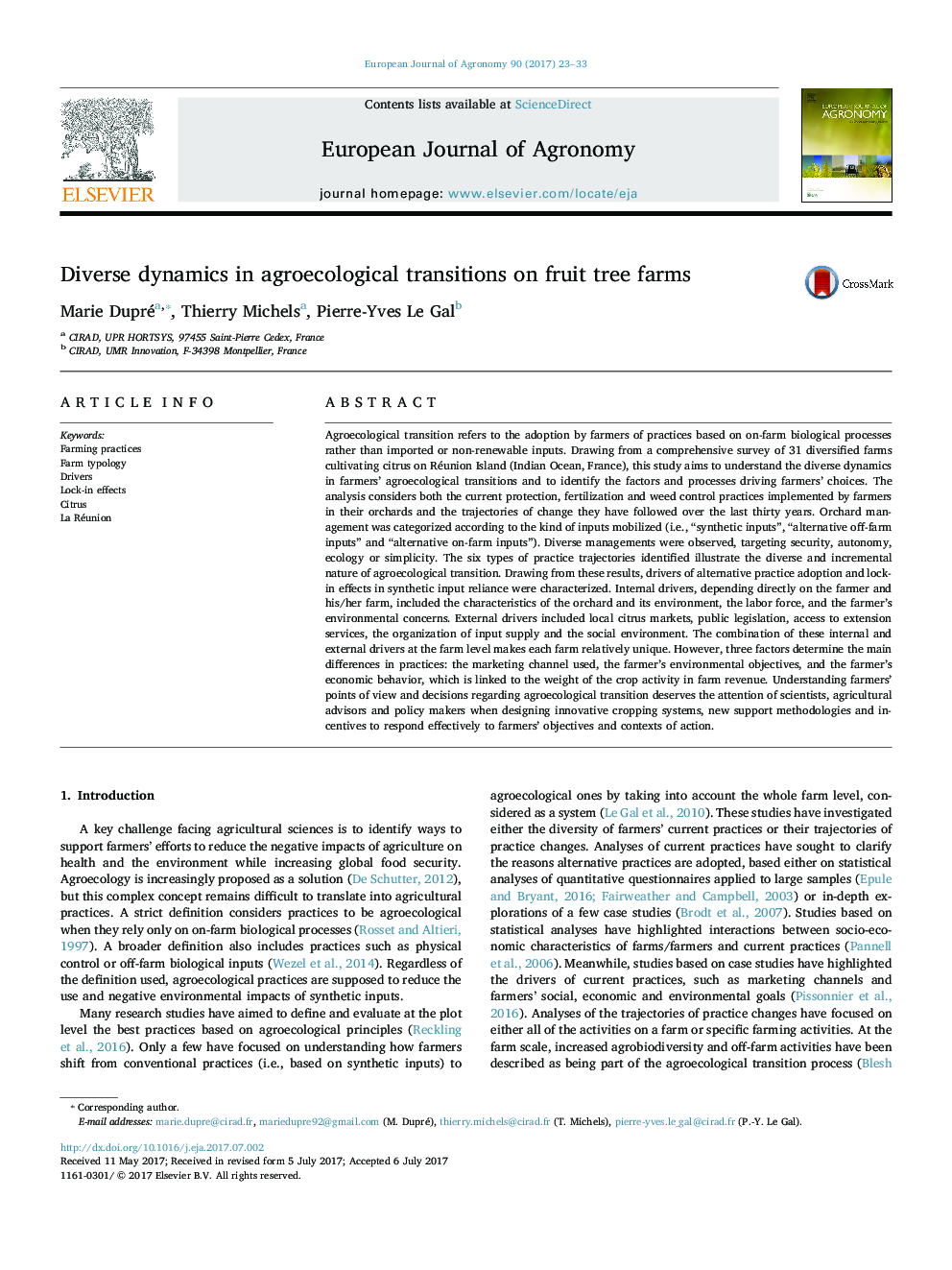| Article ID | Journal | Published Year | Pages | File Type |
|---|---|---|---|---|
| 5761179 | European Journal of Agronomy | 2017 | 11 Pages |
Abstract
Agroecological transition refers to the adoption by farmers of practices based on on-farm biological processes rather than imported or non-renewable inputs. Drawing from a comprehensive survey of 31 diversified farms cultivating citrus on Réunion Island (Indian Ocean, France), this study aims to understand the diverse dynamics in farmers' agroecological transitions and to identify the factors and processes driving farmers' choices. The analysis considers both the current protection, fertilization and weed control practices implemented by farmers in their orchards and the trajectories of change they have followed over the last thirty years. Orchard management was categorized according to the kind of inputs mobilized (i.e., “synthetic inputs”, “alternative off-farm inputs” and “alternative on-farm inputs”). Diverse managements were observed, targeting security, autonomy, ecology or simplicity. The six types of practice trajectories identified illustrate the diverse and incremental nature of agroecological transition. Drawing from these results, drivers of alternative practice adoption and lock-in effects in synthetic input reliance were characterized. Internal drivers, depending directly on the farmer and his/her farm, included the characteristics of the orchard and its environment, the labor force, and the farmer's environmental concerns. External drivers included local citrus markets, public legislation, access to extension services, the organization of input supply and the social environment. The combination of these internal and external drivers at the farm level makes each farm relatively unique. However, three factors determine the main differences in practices: the marketing channel used, the farmer's environmental objectives, and the farmer's economic behavior, which is linked to the weight of the crop activity in farm revenue. Understanding farmers' points of view and decisions regarding agroecological transition deserves the attention of scientists, agricultural advisors and policy makers when designing innovative cropping systems, new support methodologies and incentives to respond effectively to farmers' objectives and contexts of action.
Related Topics
Life Sciences
Agricultural and Biological Sciences
Agronomy and Crop Science
Authors
Marie Dupré, Thierry Michels, Pierre-Yves Le Gal,
